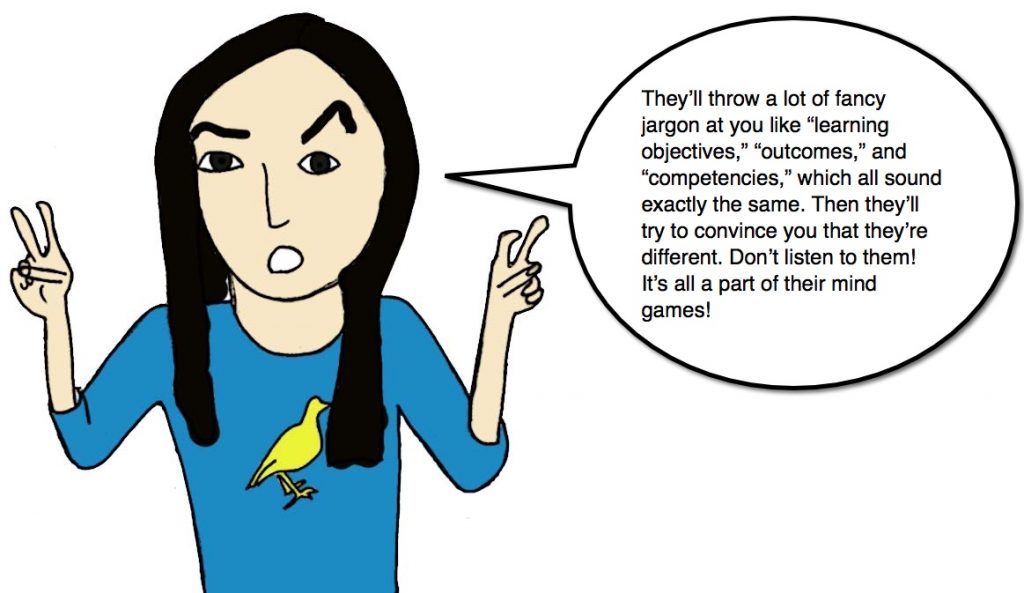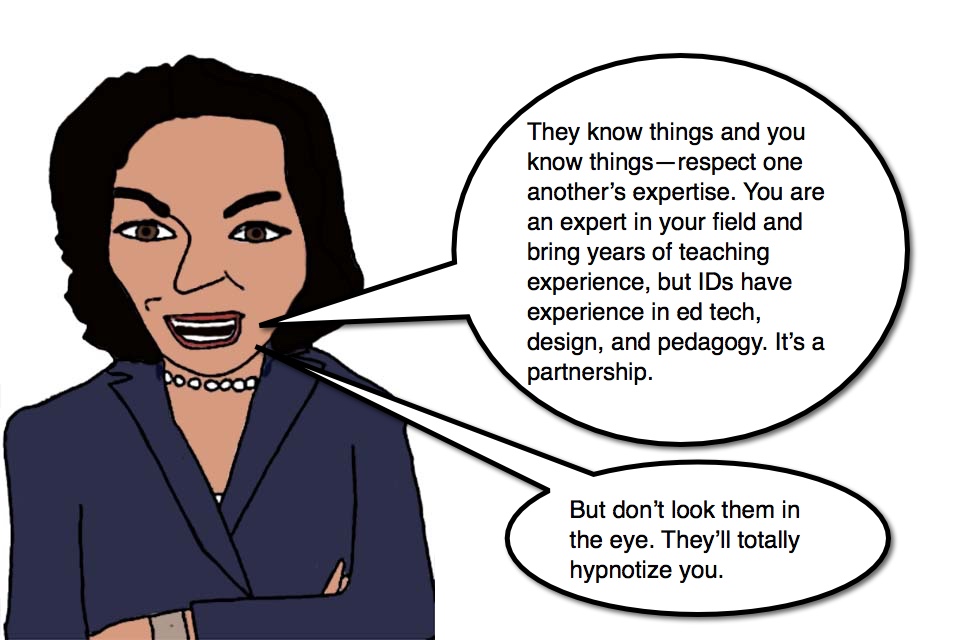
Athena is an associate professor of philosophy, and this summer she’ll be creating an online version of one of her courses.
Her chair/dean has asked her to work with an instructional designer, but Athena hasn’t worked with an “ID” before. She feels a bit nervous about it, so she asks a few of her colleagues for some friendly advice.
Friendly Advice 1:

Friendly Advice 2:

Friendly Advice 3:

Friendly Advice 4:

Friendly Advice 5:

Illustrations by Kristin Barnes
Faculty ask, “What does this instructional designer want from me?”
This comic came about as I imagined faculty advising one another on how to work with an Instructional Designer. I guessed faculty would base advice partly on experiences they’ve had and partly on what they see as the role of an “ID.” For example, if an instructor’s experiences with an ID revolved around getting tech support for a learning management system (LMS), he or she might characterize the ID as an LMS tech support person (by the way, most IDs would call that a mischaracterization). The advice from these cartoon faculty also contains misgivings about instructional designers; that’s partly for comic effect but also because I’ve seen similar apprehension among some of the faculty I’ve worked with.
So why should you, the faculty, care? Because there is an opportunity cost to misunderstanding the role of your ID, and it affects both you and your students. Please ask yourself the following questions: “Would I want to know if there were a way to…
- …help my students understand that tricky concept more quickly?”
- …spend half as much time grading essays and exams without sacrificing consistency or feedback (or even while improving consistency and feedback)?”
- …test out my online courses without the potential risks of getting feedback from faculty colleagues or through administrative channels?”
- …facilitate better human interactions in online courses—especially for those who miss their old face-to-face courses?”
Your ID can help you and your students with all of those things, but not if he or she is relegated to the role of LMS tech support person. This brings me to my first bit of practical advice—and it’s the bit I hope you take to heart from this article and actually do.
Practical tip: Ask your instructional designer what he or she sees as his or her role in your shared task or endeavor.
I expect most IDs would welcome this question; it acknowledges that both parties have a role to play and invites a discussion that will hopefully lead to a shared understanding of what each person can contribute.
If you would like to learn more about IDs (without having to talk to one), check out this report released last year from Intentional Futures. I offer it up as worthy of your perusal: https://intentionalfutures.com/insights/portfolio/instructional-design/.
Sylvia says
Hi Justin,
My name is Sylvia. A fellow ID. I love your skeptical professor comic. I want to ask for your permission to use it in an upcoming presentation. Let me know.
Thanks
Justin Mason says
Hi Sylvia. Yes, please feel free to use it, and thanks for asking! If you use it, could you cite Kristin Kowal as the artist? Thanks!
Joe says
I had a good chuckle at this. Great stuff!